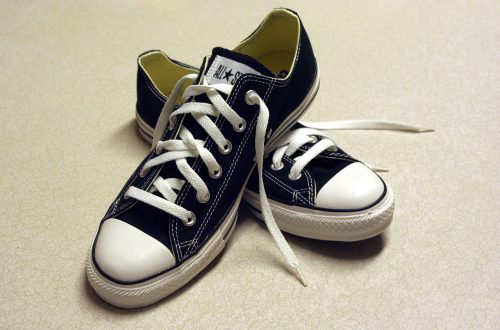Roy Hattersley argues that when it comes to actually helping the poor, to giving time and money to assist those in dire need, believers are in the vanguard while those of us who don’t believe in God have a less impressive record.
I’m sure we could give one or two anecdotal bits of evidence to contradict Hattersley’s argument but I reckon he is, on the whole, right. What he doesn’t address is why that is the case.
As I am sure Hattersley is well aware, it wasn’t always so and it is a pity that he doesn’t reflect a little on the history of working class ‘self-improvement’ movements that slowly died after WW2.
I once did a study into civil society in the early parts of the 20th century in my part of Lancashire and using microfilm local newspaper as my main source discovered a whole host of religious and non-religious bodies who were involved in helping the destitute but also the working poor.
East Lancashire was once a stronghold for two quite similiar movements that ended up in a sort of friendly competition for hearts and minds. The religion of the milltowns was non-conformist – Methodist and Baptist chapels were more popular than C of E churches and certainly more active on a social level. Politically the area also developed a thriving labour movement with well-organised trade unions and socialist societies who, as well as engaging in political agitation, were also involved in literacy projects and broader educational work (most famously the Workers’ Education Association) as well as what was once called ‘poor relief’.
There were quite a few areas where the religious and the socialist activities overlapped. The Temperance Society was primarily a Christian body but there were many active socialists who signed ‘the pledge’ and viewed alcoholism not as a ‘temptation from the devil’ but as a tranquilliser promoted by the ruling class to dampen the spirit of the workers.
It was remarkable to read of the huge number of educational, and charitable activities that were carried out in my home town and sad to reflect that almost none of those activities remained to my day and indeed that the whole spirit of ‘improvement’ had been lost.
Why did the left turn away from such activities? The obvious answer is that after WW2 the state took on many of the roles that volunteers had carried out. Education became avaliable to all, a national health service was created and public health became a matter of government and public policy. The poor and the sick were the responsibility of the state and the government of the day. For those who wanted to see improvement and change in the conditions of working people the old debate over charity or political action had been answered – politics offered the best route to dealing with problems because the British state was no longer solely in the hands of the wealthy.
This was not only a logical development but surely a welcome one – after all, socialists and trade unionists had fought long and hard to get to a position where the poor automatically received assistance and where everyone, regardless of their income or class, had the chance to better themselves through universal education. From 1945 onwards the focus was on the allocation of state resources not about what we, as individuals or communities, were able to offer. The success of the left in politics effectively killed off the left as a local, community-based force for improvement.
For the older generation of comrades who were still active in my local Labour Party in the 1980’s that was what hit them most about Thatcherism. The rhetoric about ‘Victorian Values’ and the suggestions from the likes of the Adam Smith Institute that charity rather than welfare was the best way to deal with poverty were clearly suggestions of a return to the pre-war situation and no-one wanted to go back.
The result of those rhetorical battles in the 1980’s was that for many of us, charity came to be seen as an alternative to a welfare state and while it would have been callous to criticise those that gave their time and money to help others, the firm view on the left was that ‘charity was not the answer’. You can see that view has survived by the reaction from many on the left to Geldof’s initiatives over Africa.
I still think it is right that charity is not seen as the answer to society’s problems. Social democracy is about using public resources to try and ensure that the rather haphazard and informal methods of charity are not needed. It is also supposed to offer more dignity by providing entitlements rather than hand-outs.
There is an interesting debate to be had about how a modern social democratic state should deliver public resources to those in need and while I am not going to go into that in detail here I will merely say that I favour more localised and more autonomous structures rather than the old centralised bureaucracy ruled from Whitehall, partly because I believe that one of the mistakes of the welfare state was not to try and better imitate the local structures, with the obvious advantages in terms of information and ‘good sense’, that it replaced.
But returning to the issue at hand: has the left’s almost exclusive focus on politics and the battle for state resources resulted in it losing its ‘soul’ over the past century?
I would say to a large degree that is the case. The basic appeal of socialism is to the spirit of brotherhood and dignity, that we consider an injury to one as an injury to all, that we are all responsible for each other and that if we see problems we should seek solutions and not shrug our shoulders. Socialism is about putting those values into practice at a policy level but also about responding in line with our beliefs to the problems in life that we can answer ourselves.
Clearly that is not a view which is exclusive to socialists but as one of those old comrades put it to me as a 16 year old “When a Christian sees a homeless man he feels pity, when a communist sees a homeless man he feels anger, when a socialist sees a homeless man he feels both”. In other words, while the Christian’s first instinct is towards charity and the dogmatists first thought is to politics, a socialist should be able to respond on both fronts – give the man a bed to sleep in and then go to the council and demand they have a better housing policy.
I realise this is an over-simplification because there are, of course, many Christians who are also involved in trying to improve, for example, housing policy and there are atheist-socialists who work in charities for the homeless. All I am trying to say is that once, in a different era, socialism was not just about politics, there was another ethical, humane aspect to the ideology which was supposed to be a guide to living and personal conduct. If the Soviets hadn’t abused the phrase – socialist morality would be a nice way of putting it.
The decline of the left as an organised presence in communities and the atomisation of the working class has reached such a level now that the idea of re-creating the organisations of ‘improvement’ is probably wishful thinking. If we were to be hit by a grave economic crisis there are no bodies of socialists who could respond to mass unemployment in a practical way. The most the left would manage would be to organise some protests.
The last remaining socialist presence in most communities is the Labour Party itself and as any party member will tell you – in the majority of towns and cities the party barely exists as anything other than body of local councillors and people who might turn out and help at election time. On a community-activity level, the left is virtually dead.
If it were to be re-created in some form it would surely need to recapture the sense of morality, ethics and practical and personal solidarity it lost. It would be nice if we could ‘compete’ with the Salvation Army again.
PS: Something that does remain from the past is the Clarion House near Pendle Hill in Lancashire created by the old Independent Labour Party. They have a website. If you are ever walking in that area it is fine place to stop for a cup of tea and a reminder of the kind of activities socialists once undertook.


